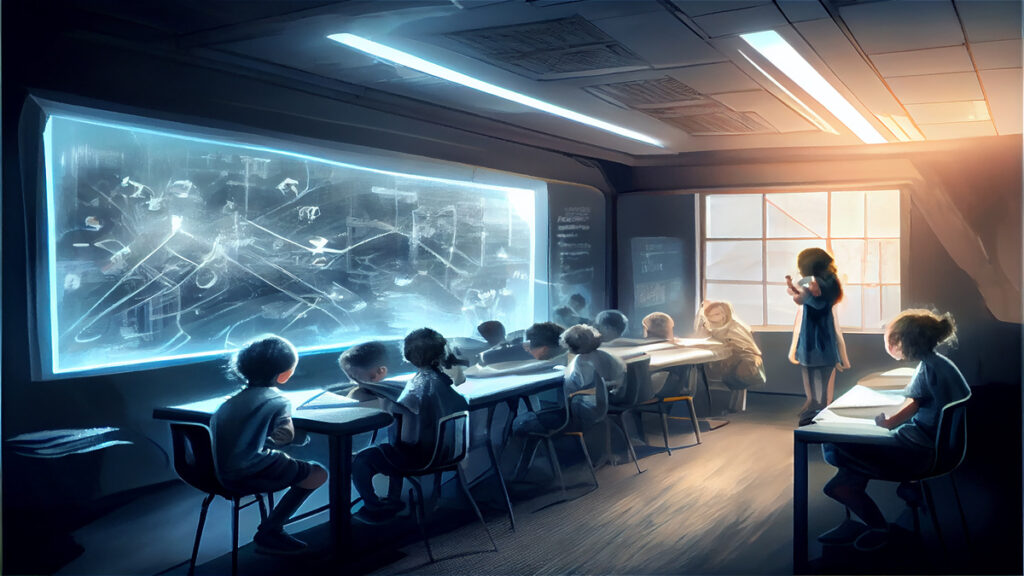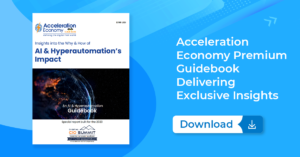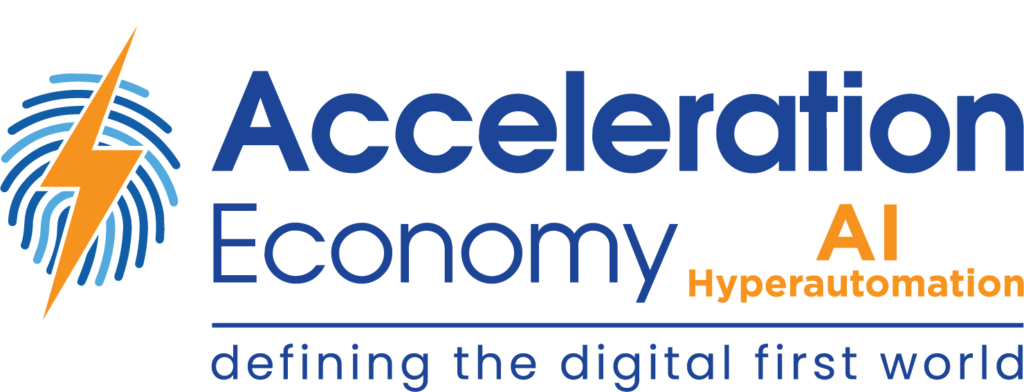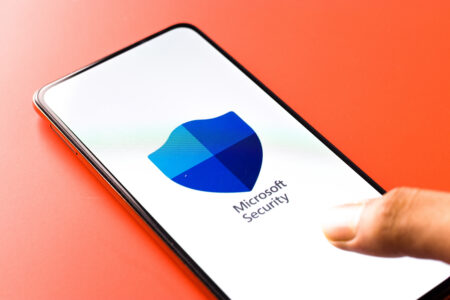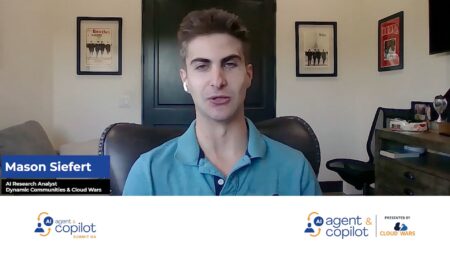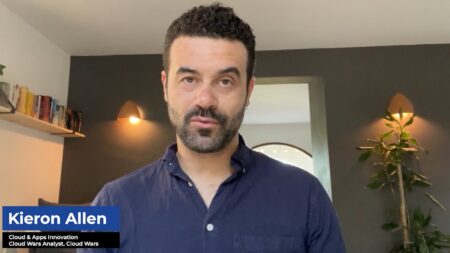I heard a joke recently that technology released when you’re under 25 is just built into your perception of the world. Between the ages of 25 and 45, new technologies are seen as innovations, the cutting edge. It takes more effort to adapt to them. New technologies that come out after you’re 45 years old, however, are just unnatural and disruptive crimes against humanity.
While this has obvious inaccuracies, every joke has a sliver of truth. Different generations view technologies in different ways; exploring varied perspectives can not only assist companies in creating better products but it can also help guide innovators to make a world that’s more inclusive for all. Generative artificial intelligence (AI) certainly falls under the umbrella of new technology. Today, I want to explore this technology through the Gen Z, or digital native, lens.
To hear practitioner and platform insights on how solutions such as ChatGPT will impact the future of work, customer experience, data strategy, and cybersecurity, make sure to register for your on-demand pass to Acceleration Economy’s Generative AI Digital Summit.
Digital Native or AI Native?
My generation (Gen Z) is often labeled as digitally native, meaning we don’t know a world without mobile devices or the Internet because we grew up with these technologies. When we want to purchase an item, the first place we look is online. When we want to socialize, the first place we look is online. The other day, I had to send a letter in the mail for the first time in years and didn’t know exactly what to do. I imagine my grandmother felt a similar out-of-placeness using Zoom for the first time earlier this year.
Our digital nativity has prepared us for rapid digital innovation. We see novelty every day on the Internet and constantly update our tooling to fit our needs. One day, it’s Zoom, another, it’s Slack, Discord, TikTok, Uber, YouTube, OpenSea. As such, the release of a yet-another-tool like ChatGPT was surprisingly well-received. Many of my college friends use the tool religiously to assist with research or draft essays. Yesterday, I overheard a University of Chicago law student mention to his friend that he only finished his assignments by letting ChatGPT summarize his cases.
For us, generative AI tools are just a natural extension of the digital library of tools we use day to day. This is why our generation is the quickest to adopt AI-powered features, like a bank offering a chatbot for financial advice or personalized experiences across sites. It also helps that companies that we’re already familiar with are integrating generative AI features.
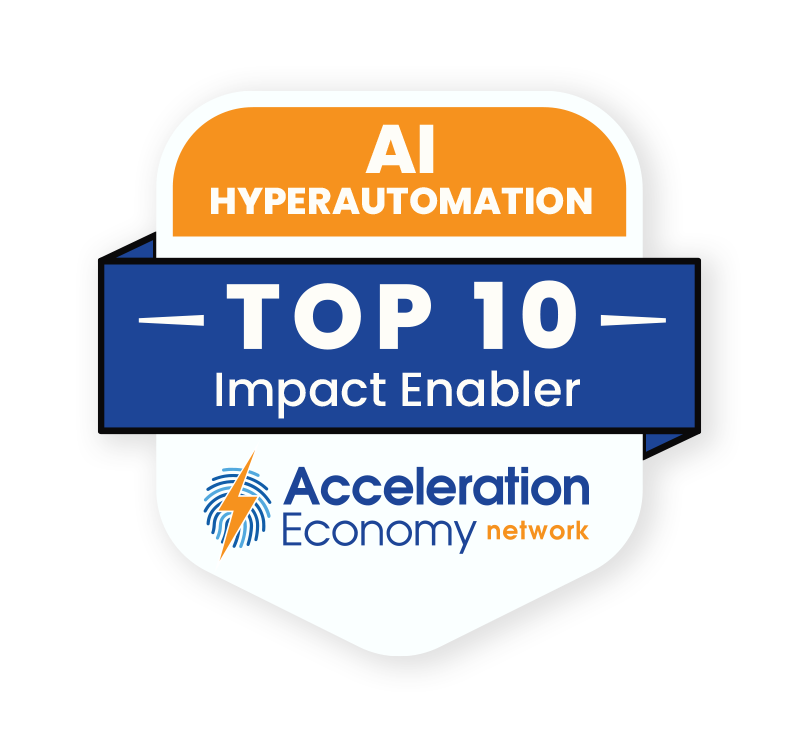
Which companies are the most important vendors in AI and hyperautomation? Check out the Acceleration Economy AI/Hyperautomation Top 10 Shortlist.
The Impact of Generative AI on Gen-Z
The previous section contains a lot of broad generalizations. Yes, younger folks tend to adapt more quickly. But the ever-increasing pace of technological development has left even twentysomethings breathless and confused. My friends who are studying computer science may be comfortable with this pace of change, but the 18-year-old high schooler who sees a deepfake video on TikTok may not even consider that it was produced by AI. Other Gen Zs are already set in their career, their mode of thinking, and their toolset — without the room to think about the inclusion of AI in their work.
When it comes to education, there are students who use generative AI to assist in their learning and assignments. But there are also many students who haven’t heard of these tools, putting them at a serious disadvantage both in school and, eventually, in the labor market where candidates with experience using AI are vastly more productive than those that aren’t.
Some educators might argue that generative AI stunts the learning of a student, but to me, this is like arguing that the calculator makes a student ‘bad’ at math. Calculators allow us to focus on higher-level tasks, like algebra, calculus, and beyond, instead of dealing with pesky arithmetic.
Generative AI is no different. It lets us automate the task of connecting sentences together while letting us focus on higher-level tasks, like fact-checking, interviews, or asking the right questions (or prompts). Ideally, we should teach writing at an early age but encourage generative AI usage later on, just as we teach arithmetic by hand first but eventually let students use graphing calculators, Mathematica, or code to solve more advanced math problems.
Just as schools started teaching safe online searching after the Internet became unavoidable, they must now consider teaching prompt engineering and safe AI usage as well as bias and deepfake identification. This is because leveraging AI tools will soon be like conducting effective Google searches or using Excel — you can’t stay in the knowledge workforce without it. Teaching these subjects will also help students recognize the limitations of generative AI and why they can’t always rely on it.
The Gen Z Creator Economy and Generative AI
There are always jobs that everyone wants but few people receive. For past generations, this list might have included pilots, investment bankers, or newspaper publishers. For Gen Z, one dream job is being a creator.
In its current form, generative AI can be used in combination with a creative mind to produce amazing results at a faster rate. However, it also lowers the barriers to entry to becoming a creator. Many Gen Zs wanting to enter this profession will be lured in by the ease of using generative AI tools, only to realize that the world doesn’t value mass-produced, low-quality content.
The best creators have included generative AI in their workflow but realize the secret sauce of authenticity and hard work doesn’t go away. I encourage any fellow Gen Z readers to not be lazy and rely on technology alone to make a living.
Society needs electricians, politicians, engineers, inventors, and entrepreneurs — not second-rate podcasters or speculative NFT droppers. In a sense, the creator economy is Gen Z’s rat race, and I have concerns that generative AI is only tricking more young minds into it.
Employers and coworkers who aren’t Gen Z will also need to evolve. The importance of learning new skills in one’s early career has been increasingly important, especially as academic curricula reflect the labor market’s needs less and less. If you want to attract the best Gen Z talent, pay isn’t the answer; learning is. That will inevitably include working with AI technology for training and learning in the coming years. For additional insight on working with Gen Zs, check out my analysis on my generation’s top work expectations.
Apprehension for the Future
Being at the beginning of our careers and lives, our generation sees developments in AI through a different lens than someone in the middle or end of their career. While significant developments will come even in the next five to 10 years, the next 30 or 40 are simply unimaginable.
The level of uncertainty around the labor market, education, ethics, and society at large is a major stressor. It’s also one reason why I decided against taking a ‘traditional’ career path by not going to college — which is a topic for another time. While we’re frequently exposed to alarmist perspectives on technology with productions like Black Mirror or The Social Dilemma, I think AI still scares us to some extent. Not just because it’s hard to understand, but because we have no idea where it’s headed.
Looking for real-world insights into artificial intelligence and hyperautomation? Subscribe to the AI and Hyperautomation channel:


